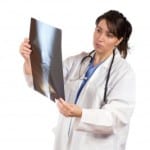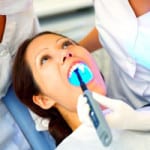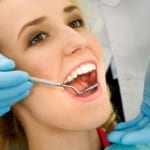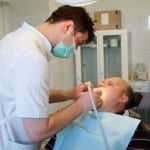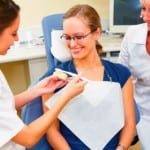 When thinking about cancer, many forget about the dangers of oral cancer and even more forget that your dentist should be the first stop to diagnosis the disease.
When thinking about cancer, many forget about the dangers of oral cancer and even more forget that your dentist should be the first stop to diagnosis the disease.
About oral cancer
Oral cancer usually starts off in the mouth as a small spot or sore. These are commonly white or red and can be located in any part of the mouth. If untreated, these sores can affect any area of your mouth, including your gum tissues, tongue, palate, lips and lining of the cheeks. Oral cancer also occurs more regularly in people who smoke and if you combine this with consumption of alcohol, you greatly increase your risk of developing the disease. Signs of oral cancer may include:
- Colour changes in your oral tissue
- Difficulty with chewing, speaking, swallowing or moving your jaw and tongue
- Sores in the mouth that easily bleed and do not heal
- Lumps or thickening rough spots
- Small eroded areas in the mouth
- Pain, tenderness or numbness on the lips and inside of the mouth
Oral cancer screening
By visiting your dentist more regularly you can significantly decrease your chances of suffering with oral cancer, as screenings are part of your routine dental examination. It is therefore important that you have regular full mouth check-ups, so your dentist can detect the early stages of cancer and treat it. Some spots or sores located in the mouth may not be cancer, but it is always best to check just in case and your dentist will perform a brush test to ensure the sore or spot is not dangerous. If anything is found to be wrong with the sore then it will be removed in a separate procedure, but it is important to know that positive results from the brush test will be confirmed first by incisional biopsy and histology.
Remember, it is important to visit your dentist for an oral cancer check-up, as on average only half of those diagnosed with oral cancer will survive past five years. However, oral cancer is one of the most treatable forms of cancer if found at an early stage.





